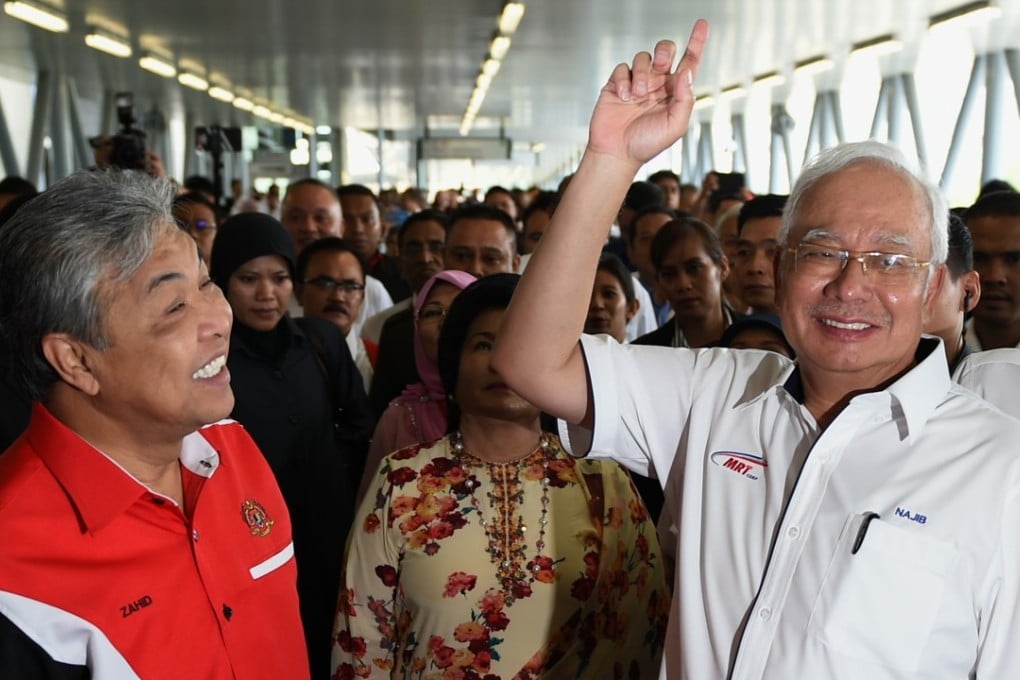Malay first: Najib’s take on Malaysia’s new metro risks upsetting the Chinese
Malaysian prime minister hopes to gain political mileage from the project – but his championing of the bumiputra policy could raise eyebrows among China’s increasingly influential investors and construction firms

As Malaysians cheer Kuala Lumpur’s shiny new 21-billion-ringgit (HK$38 billion) metro link, Prime Minister Najib Razak seems to be doing his best to extract political mileage.
At the official launch of the Sungai Buloh-Kajang Mass Rapid Transit (MRT) line last month, the premier sought to paint the completion of the network under budget and on time as evidence that his ruling party’s decades-old bumiputra (sons of the soil) policy – which grants special privileges to ethnic Malays – was paying off.
What’s causing Malaysia’s ethnic Chinese brain drain?
That appeared to be an effort to win over voters ahead of a general election expected as early as this year – and no later than August 2018. But his words are likely to raise the eyebrows of mainland Chinese investors and construction firms, who are rapidly gaining influence in Southeast Asia’s third largest economy with huge infrastructure undertakings.

In his speech at the launch event on July 17, Najib said the bumiputra policy was successfully implemented in the MRT project because “only those properly qualified were given the opportunity”.